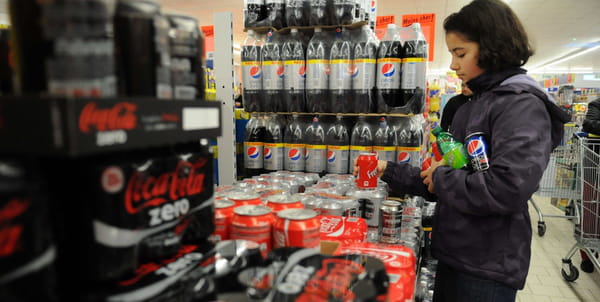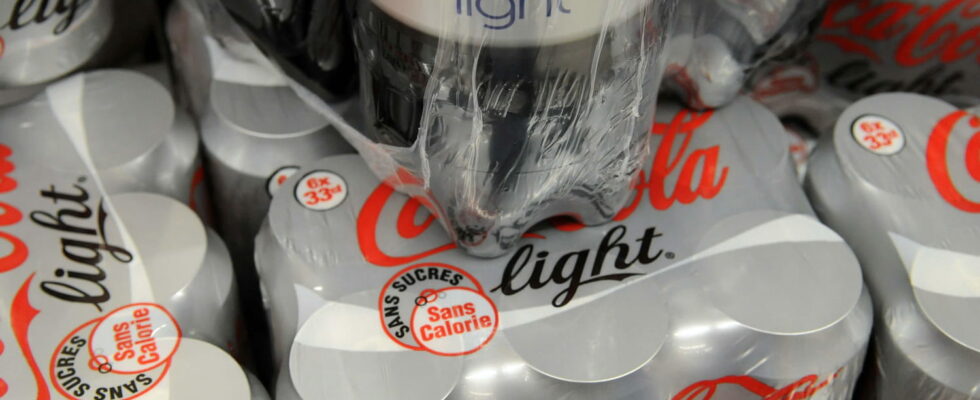Diet sodas are seen as good alternatives to the classic sugar-filled versions. However, these diet drinks could be even worse.
Many sodas are available in a light version. At first glance, they appear preferable to the classic version. A light drink is defined as having a sugar and fat or calorie content reduced by at least 25% compared to the reference product. These drinks are popular with adults: 60% of French adults consume them according to IDM Families. Is this really recommended?
A study, presented at the conference Nutrition 2024 in June, looked at the eating habits of more than 500,000 people over three decades. The researchers found that those who ate large amounts of ultra-processed foods had a 10% higher risk of death during the follow-up period compared to people who ate very little. Some of these foods are more associated with a higher risk of death. Diet soda is one of them, as are sugary sodas. Added to the mix are refined grains such as ultra-processed baked goods and processed meats such as hot dogs and sausages.

In diet drinks, manufacturers often replace sugar with artificial sweeteners that preserve the taste but provide fewer calories, such as aspartame, cyclamate or sucralose. However, according to a Ben-Gurion University studysweeteners would harm the intestinal microbiome, beneficial bacteria present in the digestive tract.
According to one Columbia University and Miami Miller School of Medicine studylight products would even be associated with a 61% increased risk of heart attacks compared to normally sweetened sodas. Similarly, according to National Institute of Health and Medical Researchthe risk of type 2 diabetes is higher with diet drinks than with traditional ones. A person who drinks 1.5 liters of diet soda per week increases their risk of developing diabetes by 60% compared to someone who drinks the same amount of a normally sweetened drink. For researchers, this may be due to aspartame, the main sweetener used in France, which induces an increase in blood sugar and an increase in insulin levels.
Checking the sweeteners used in diet drinks and their quantity therefore seems beneficial. But there is also one detail that needs to be closely monitored, and this time it comes from the way you drink diet sodas. One of the problems is in fact the way you consume these products, according to Dr. Jimmy Mohammed for RTL : “We notice among consumers of diet drinks that they will drink crates and crates of them. They will not just have a drink from time to time. They will be used to and addicted to this sweet taste, and this constant appetite for sugar”. So be careful not to fall into the trap: a diet drink should not give you the feeling of being able to drink more soda. A spiral that would be dangerous.
